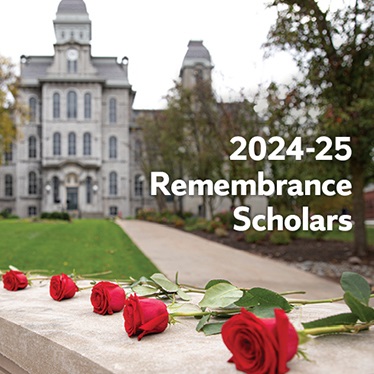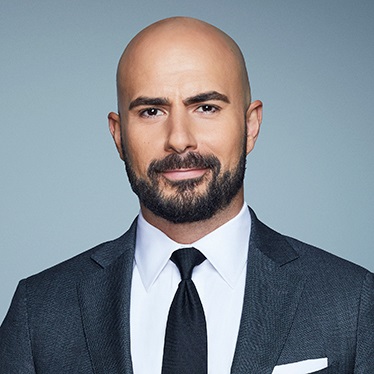Year One
June 1, 2020
Toluwanimi Fajolu came to Syracuse last fall as part of the first class of freshmen admitted directly to the Maxwell School. Born in Nigeria and now living with her family near Baltimore, she was excited to pursue her interests in law and politics—with long-range plans to become a criminal lawyer and, ultimately, work on overturning wrongful convictions.
“After taking three political science courses, I think it is the perfect fit,” she said in April, in the midst of her second semester. “I also have interests in philosophy, history, English, and French, so I am considering double majoring or minoring in one or two of those.”
That ambitious academic agenda brought a challenging workload in her freshman year, but Fajolu’s dedication and focus paid off. In February, she became one of seven inaugural recipients of the Otey and Barbara Scruggs Scholarship, which provides financial support to exceptional first-year students at Maxwell; the award is renewable through the recipients’ undergraduate careers.
The new scholarship was created by Jeffrey Scruggs and his wife, Robbin Mitchell, in honor of Scruggs’ parents; his father, the late Otey Scruggs, was a pioneer in African-American studies and a history professor at Maxwell from 1969 through his retirement in 1995. The family’s purpose in establishing the scholarship is not only to recognize high-achieving freshmen like Fajolu, but to support and retain them through graduation.
“One of the factors that influences a student’s decision to stay is whether their hard work is being recognized.”
David M. Van Slyke
Dean, Maxwell School
“We want to encourage freshmen who are accomplishing good things,” says Jeffrey Scruggs, a member of the Maxwell School Advisory Board as well as an SU trustee. Providing consistent support through senior year, he said, “is a way of having a lasting impression—rather than giving a one-time award that doesn’t necessarily encourage someone to stay for the balance of their education.”
Improving student retention is a critical issue across higher education. Nationally, about a third of first-year students don’t return for sophomore year, due to factors including a lack of preparedness, inadequate support, and concerns about costs and loan debt. While retention rates are much higher at the most selective colleges, the same pressures apply, and top students may be tempted to transfer to other institutions for lower costs. By supporting standout freshmen, the Scruggs scholarship makes an important contribution to efforts at Maxwell—and SU as a whole—to make sure students have the resources to stay on track, says Maxwell Dean David Van Slyke.
“In addition to academics and social support, one of the factors that influences a student’s decision to stay is whether their hard work is being recognized—and of course whether they can afford to continue,” he says. Once a student makes it through year one, continuation becomes less precarious. “Research shows that students who experience success and come back for their second year are highly likely both to stay and to graduate in four years,” Van Slyke explains.
The costs of a private education—not just for tuition and campus living but internships, study abroad, and other opportunities—may particularly impact students from diverse racial, cultural, and socio-economic backgrounds. So student-retention strategies also help foster diversity in the campus community.
“What’s important to me is that we have students who really reflect the diversity of our nation and the world,” says Van Slyke. “We want them to come to Syracuse University and the Maxwell School and experience academic success, and also find lots of other support systems that help each student be successful as a whole person and as a future potential leader.”
For Toluwanimi Fajolu, as she plans her academic path for sophomore year and beyond, receiving the Scruggs scholarship is making a real difference. “When I got the news, I was ecstatic because it reduced the financial load on my parents,” she says. “As a student, it also reduces the stress of college and allows me to focus on my academics.”
By Jeffrey Pepper Rodgers
This article appeared in the spring 2020 print edition of Maxwell Perspective © Maxwell School of Syracuse University.
Related News
School News

Apr 18, 2024
School News

Apr 18, 2024
School News

Apr 17, 2024
School News

Apr 16, 2024